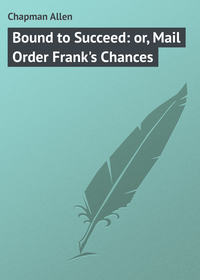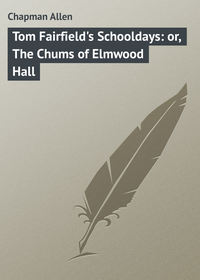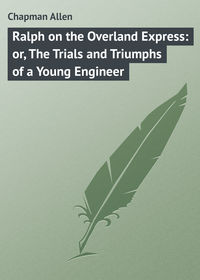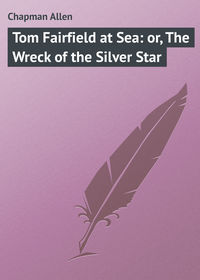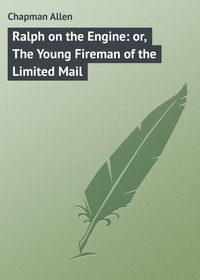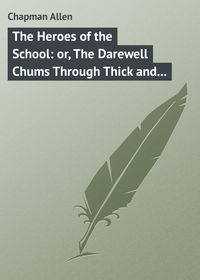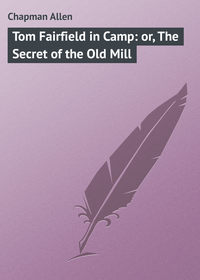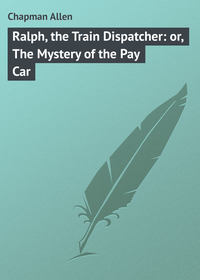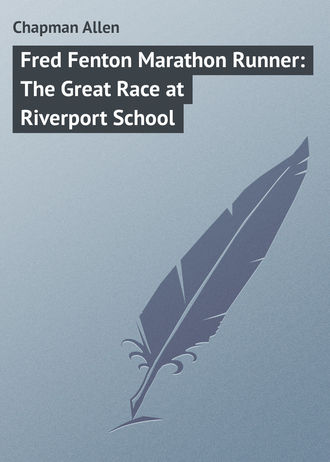 полная версия
полная версияFred Fenton Marathon Runner: The Great Race at Riverport School
"Of course," added Fred's companion, "none of us have ever gone as much as twenty-five miles in a single run, so we don't know what we can do, but, for that matter, I don't believe a Mechanicsburg or Paulding fellow has, either."
"But we mean to cover the course in a trial run before the great day comes, you know," Fred told him. "I'm laying great store on one fellow we've got."
"Of course you mean long-legged Colon, Fred?"
"Yes," replied Fred, "our fastest sprinter, a fellow who can hump himself like a grayhound or a kangaroo in action, and cover more ground at the finish than anybody I ever saw."
"But the most Colon's ever gone is ten miles," remarked Bristles, "and we don't know what his staying qualities are. He may give out before fifteen miles have been covered. If anybody asked me, I'd say we had more chance with a husky fellow like you, for instance, who never has been known to get tired, and can use his head as well as his heels."
"Then there's Sid and Brad," remarked Fred, hastily, "who have made up their minds to be in the line when the signal is given; both of them are known to be stayers. Of course I'll do my level best, but I hope none of you pin your faith to a single runner. A little team work, or strategy, sometimes helps out in cases of this kind."
"How can that be, when everyone has to run for himself, until hopelessly distanced, if I read the rules straight?" asked Bristles.
"Only in this way," replied Fred. "If there are three entered from a school, one of them might take the lead, and set the pace for a while. When he had covered, say a third of the distance, he would fall back, and a second forge to the front, leaving the last fellow to cover the home stretch. It's been done in other races, though I believe some people frown on it. Still, there's no ban on the practice."
"Why, no, this is a race between rival schools," said Bristles, "and every fellow is supposed to be willing to sacrifice individual chances for the good of the lot, just as team-work pays in baseball or anything else."
"Well, let's cut out the talk for a while, and put on more steam," advised Fred. "Here's a good chance for a spurt, down the grade, and then along two miles of level road."
"Go you, Fred!"
The two runners went flying along like the wind until they had reached the foot of a steep hill, which it would be folly to attempt to climb at more than a walk. Once beyond this, a fine stretch of country opened before them, with farms and woodland on every side.
Fred had a pretty fair map of the region, which he had made from picking up information on every side. One of his motives in making this tour on Saturday morning, was to verify its truth. Once the route of the Marathon race had been issued, all those who expected to compete would have the privilege of going over the ground as often as they pleased. If any fellow were smart enough to discover how he could cut off a hundred yards or two, and yet report at every station, he was at liberty to do so.
A knowledge of the course often counts heavily in a Marathon race, as it does in many other things. That is why most baseball clubs play better on their home grounds, where they know the lay of the land, the presence of treacherous little hillocks, the usual slant of the wind, the value of sending their balls toward a certain fence where home-runs count heavily, and all that sort of thing.
Five miles farther on, and the boys had come to a place where Fred, on consulting his map, observed:
"The road runs away around, and by cutting across the woods here as much as two miles can be saved. I understand that the contestants will have that privilege offered to them if they choose to take it.
"Why, of course everybody will grab the chance," remarked Bristles.
"I'm not so sure about that," he was told by his companion, "and for this reason: while the shortcut saves considerable distance, it's bound to be harder going, and some runners might even get lost in the undergrowth, so they'd be cut out of the race."
"Gee! I never thought of that, Fred; but you're right."
"Then if they have a hard time breaking through," continued Fred, "and finding the other road above the registering station, they may be winded, so that the other fellow who's gone all the way around would be in much better shape for a gruelling finish."
"It all depends, then, on knowing your ground?" pursued Bristles.
"And that's what we want to make sure of as we go through the woods here right now," continued Fred. "Both of us must take our bearings from certain trees as we push along. If we strike a trail that leads to the right quarter, we'll manage to blaze it in some fashion that other fellows would never notice, though we can put our own crowd wise to the signs.
"Here's where the head work comes in, eh, Fred?"
"Only a small sample of it," laughed the other, "and there'll be plenty more to follow before we win this Marathon. If any of the opposition crosses the tape ahead of Riverport, it'll be because they're better runners and managers than we are, that's all there is to it. But come on, let's break away from the road."
Upon that the two boys entered the woods, carefully marking the spot in their memories by noticing a certain bunch of white-barked birches that drooped over in a peculiar way, different from anything they had thus far seen.
Fred had his little compass with him. He had laid out his course exactly, so as to strike the other road at a certain spot, which it was believed would be just above the toll-gate, where he knew one of the registering stations was bound to be placed.
Of course they could not expect to go in a straight line, or as the crows fly. All sorts of obstacles interfered with such a scheme. Now it was a deep gully that barred their progress; a little further on they came to a stretch of swampy ground, where a runner would find himself bogged and placed in a desperate condition, if he attempted to push through. But wise Fred had early discovered what seemed to be a fairly well worn trail that seemed to lead in the direction they were intending to go. At times it was exceedingly difficult to see the track, but both these boys had keen eyes, and used good judgment, so they managed to come upon it frequently.
All the time they continued to make note of certain landmarks that would aid them later on, when again passing through this strip of woodland and jungle. Possibly there would be a mile of it, against three by the road. Plainly then, if a runner could get through in fairly decent shape he would have saved more or less time in so doing.
The two Riverport lads had perhaps gone half way, and were feeling well satisfied with the progress made, when Fred stopped and held up his hand.
"Listen, Bristles!" he exclaimed, "what's all that racket do you think?"
"Sounds like dogs barking and snarling, to me, Fred."
"But away out here in the woods you wouldn't expect to hear a pack of dogs, unless they were running wild," urged Fred, still listening.
"Whew! that reminds me of what I heard an old farmer tell in the market one day last week," exclaimed Bristles. "He said he had lost three sheep this Spring from dogs, and that a pack of sheep killers was loose up around his section!"
CHAPTER VI
THE WILD DOG PACK
"How's that, Bristles, a pack of wild dogs running around, and killing sheep?" Fred demanded, appearing to take uncommon interest in what his companion had just said.
"Yes, and Fred, I honestly believe that farmer lives somewhere up in this region, because I heard him tell about having a runaway near the Belleville tollgate, and you know that's where we expect to fetch out on the road ahead."
"Then that settle it, Bristles. And there's no doubt we're hearing the yelping of that same pack right now. I reckon they're on some track or other."
"Whew! I hope it isn't our track then!" exclaimed the other lad, as he began hurriedly to look about him for a stout club, and eye the neighboring trees, as if an unpleasant alternative had forced itself upon his notice.
"The sounds seem to come from back yonder, where we passed along," remarked Fred; and as though in his mind an ounce of prevention might be better than a pound of cure, he too hastened to pick tip a heavy billet of wood, that was as large as an ordinary baseball club.
"But what makes dogs act that way, and go wild?" asked Bristles. "I never knew of any doing such a queer stunt."
"It's this way," explained the other, quickly, as though he had recently been reading the matter up, and was full of information. "Dogs are kin to wolves and foxes, you know. Fact is, many a wolf I've seen looked just like a dog."
"Yes, that's a fact, Fred!" admitted Bristles, nodding his head, and still noting the fact that the chorus of barks, yelps and snarls seemed to be gradually approaching all the time.
"Well, every once in a while some dog seems to hear the call of the wild. He takes a dislike to confinement, hates human beings, and the first chance he gets puts out for the woods, where he lives just as a wolf would do, by the chase. Sometimes farmers' watchdogs that are thought to be honest get this sheep-killing habit, and play tricks, covering their tracks so they go a long time without being found out, and then only by accident."
"Yes, I've heard all about that, too, Fred, but because one dog goes wild, why should a whole lot of others follow after him, I want to know?"
"Well," continued the other, "as far as I understand it, here's the reason. Every dog has that same nature about him. I've seen it proven many times. We had an old dog named Mose, who was never known to chase anybody. He used to lie there asleep on our front porch by the hour. Then next door there was a little cur that somehow took to chasing after wheels and wagons. You've heard how dogs yap-yap whenever they do that, haven't you, Bristles?"
"Lots of times," assented the other, nodding, and still earnestly listening.
"It's about like some of that racket we hear now," Fred went on to explain. "They say it excites a dog like everything. When that little cur next door would start down the street with a yap-yap-yap, I've seen our poor old Mose jump up, as if he'd had a signal no living dog could resist, and go rushing out of the yard, to join in with the cur and some others that gathered like a flash. That's what it means."
"And these other dogs have got the fever in their veins by this time too, eh, Fred?"
"Yes, and they are satisfied to chase around after the leader, perhaps taking an humble part in his kills. But Bristles, I'm afraid we're going to see for ourselves what the pack looks like."
"You mean they're coming this way fast now?" observed Bristles, tightening his grip on the club he had selected from many that lay under a tree shattered by a bolt of lightning the previous Summer.
"There's no doubt about it!" declared Fred, steadily.
"Course we could shin up a tree if we wanted to, Fred, but that'd go against my grain. I feel like standing my ground, and trying to get a whack at that sheep-killing leader of the pack. Gee! wouldn't the farmers give us a vote of thanks if we did manage to put him out of the running?"
"We may have the chance sooner than we expected," Fred went on to say, grimly, for the tempest of sounds seemed to be very close now, and they could actually hear the rush of the advancing pack.
"How many are there, do you think?" asked Bristles, and if his voice trembled a little, Fred believed it was from excitement rather than fear, because he had seen this local comrade tested many times, and knew that he never flinched.
"At least four," Fred replied, "because I can make out that many different yelpings, and there may be six, with some small runts coming along in the rear."
"I only wish I had more duds on, and a pair of leather leggings in the bargain," muttered Bristles, glancing rather ruefully down at his bare shins, which of course were wholly unprotected.
"Here they come!" announced Fred, suddenly.
There was a rush of pattering feet, together with a fierce series of yelps, and then through the thicket came pouring a string of hustling animals, heading directly toward the two boys.
"Whew! he is a dandy, sure enough!" exclaimed Bristles, referring of course to the large animal in the lead.
This was a dun-colored beast about the size of a wolf and not unlike one in many of his attributes. He presented a really terrifying front now, with his open jaws that disclosed shining fangs and a red tongue, and his blazing eyes, together with the bristles that stood up on his neck very much like those of a wild hog.
"Give 'em a shout!" exclaimed Fred, who remembered at that moment that most dogs have learned to respect the sound of a human voice, and this might serve to bring about a halt in the onrush of the savage pack.
Accordingly both of the young men started swinging their clubs wildly about their heads and yelling at the top of their voices. This threatening demonstration did have some effect on the milder elements of the pack, those dogs that had been lured into wrong-doing, and were not viciously inclined. Three immediately fell back, and one of these even turned tail and started to run away at breakneck speed as though the sight of those cudgels inspired him with respect, on account of a recollection of some previous beating.
There were three, however, that still kept on, the leader of the pack, and a couple of others. If ever Fred Fenton in all his life wished heartily for a gun of some kind it must have been just then, when, with only a single companion to stand alongside, he found himself about to be attacked by a trio of furious dogs gone wild, and running through the woods.
It would not have been so bad had there been only two, for then each of them could manage an adversary; but that odd beast bothered him.
"Tackle the leader, and leave the others to me; I'll help you as soon as I send them flying!" was what Fred exclaimed, as the three dogs bore down upon them.
"All right; I'm on, Fred!"
There was no time for another word, because the animals were upon them. They came with a rush, as though furious at seeing the bare-legged boys in their hunting preserves. That leader must have taken a decided hatred of all human kind, and when backed by his followers, seemed ready for any deed of daring.
Fred and Bristles had their hands full from the very start. It was their object to do all the damage they could without allowing any of the dogs a chance to sink their teeth into their legs, or leap upon their backs, as they appeared desirous of doing.
Luckily both boys were sturdy and agile. More than this, they realized the desperate nature of their position, for no help could reach them there. If they hoped to come out of the fight with credit, they must depend wholly upon their own valor and ability.
Bristles whacked the dun-colored beast soundly, as he made a ferocious leap up toward his throat, and had the satisfaction of seeing him whirl headlong. It was only a temporary backset, however, for as soon as the animal recovered his feet he made another mad rush, so that the boy was kept busy prodding him, using his club right and left as an Irishman might his shillalah, and in every way possible trying to beat the brute off.
All the while Bristles kept up a shouting that was intended to nerve his own arm, and possibly help to strike terror into the hearts of the four-footed assailants.
"You will, eh? Take that for a starter, and plenty more where that came from! Try to catch me off my guard, will you? Whoop! that was a beauty of a crack! Hope I made you see stars that time, you snarling beast, you! Get back there! Shinny on your own side, can't you?" and he gave a sudden kick at one of the smaller dogs, that, taking advantage of the row, had tried to creep in and nip him on the leg.
While all this was going on, Fred had his hands full with the other two dogs. If they lacked some of the ferocity and daring of the leader of the pack, it was made up in the fact of their being a pair to watch, and keep from closing in with him.
Fast his club flew, and hearty were the whacks he gave right and left. One after the other he had sent his assailants headlong, thanks to lucky shots. When they returned to the scrap, they began to give evidence that this sort of thing had begun to pall upon their liking, and this encouraged the boy to work harder than ever.
Just then, imagine the delight of the two hard pressed boys when they heard a cheery shout close by, and saw a lithe figure, also in running trunks, come leaping toward the spot.
No need for them to ask themselves who this could be, for well did they know the most remarkable method of getting over the ground peculiar to Colon, and which some people likened to the singular hopping of a kangaroo.
He already had a club in his hand, and he immediately started in to wield it with telling effect on one of Fred's assailants. The consequence was that this particular dog turned tail, and ran off at top speed. Its mate, as though realizing the folly of keeping up an unequal combat, hastened to do the same.
This left the savage leader of the pack alone to face three antagonists. Fred could not help but feel something akin to admiration for the defiant beast as he attacked first one and then another of them. Evidently the idea of running, and saving his hide, had not as yet appealed to the enraged dog.
"Keep knocking him, everybody!" shrieked Bristles, now more than ever determined on finishing the terror of the neighboring farmers. "We've just got to nail him, boys. Don't let him shoot past you! Pound him on the head! Knock him galleywest! That was a socker, Fred; you've got him down, I tell you! Now, everyone pile in and we'll end his sheep-killing career for him!"
There was a concerted rush from three sides. The half dazed beast could not recover in time to leap upon anyone of his foes, though he snapped his jaws together so that his terrible teeth met with a clicking sound.
For a short time the clubs rained blows on his head, until Fred finally called out:
"That's enough, fellows; he's thrown up the sponge!"
"Hurrah for us; we've cleaned the ugly pack out, boys!" cried Bristles, thought so short of breath after his exertions that he could hardly stand erect.
Yes, the sheep-killing dog had been slain, and while Fred was of course very well pleased over the outcome of the fight, at the same time he looked down with considerable respect upon the dun-colored beast that could exhibit such desperate courage, and put up such a game defense against three foes.
Bristles insisted upon shaking hands with each one of his mates, and then he and Fred turned upon the long-legged Colon with a look of wonder on their faces, as though they could not understand how it was he had shown up at such a lucky moment.
CHAPTER VII
THE SHORT-CUT WAY
"Now, where did you drop down from, Colon?" asked Bristles.
"Me?" exclaimed the tall chum, with a broad smile on his face. "Why, straight from town, if you want to know. You see, I found out, after all, I could get off, and hurried to where you said you'd start, but Fred's ma told me you had half an hour the lead of me. Still, as I happened to know the layout of the trip, I made up my mind I'd follow along, and hump myself a little to overtake you fellows.
"But how'd you know where we left the road, and started across the woodland, tell me, Colon?" asked Bristles; whereupon the other nodded his head, and looked wise.
"Oh! well!" he explained, "you see, Fred told me about where he expected to break away and so of course I kept looking; and I saw that you'd turned out just about under that bunch of birch trees. Why, you left a plain track in the dust on the road. After that I used my eyes and my head, and kept pushing right along. I'm reckoned something of a scout in the woods, you must know."
"You certainly have done a big thing in that line this time, Colon," asserted Fred, vigorously; "I never would have believed him, if someone told me you'd done it. And let me remark that you certainly came in on us at the right time."
"I should say he did," assented Bristles, joyfully. "I was getting tired of swinging my club, and whacking that terrible critter. Talk to me about being able to stand punishment, – I never before saw a dog that could come up fresh every time you keeled him over. Most curs would run away, howling like mad, but he just set his teeth, and took a fresh grip. Whew! I'm sure glad it's all over."
"Either of you get nipped anywhere?" asked Colon, anxiously.
"I hope not," Fred replied, "it's a dangerous thing to have a dog bite you, because you never know what's going to happen. Often the scratch from the claws of a tiger or a lion is followed by blood poisoning, because they tear their prey, you know. I was sent over once, and seem to have a few scratches on my shins, but they came from the stones and thorns. How about you, Bristles?"
"I kicked one of those smaller runts that tried to bite me, but I don't think he got his teeth in my leg. Those blood marks are scratches, where I ran into the thorn bush while I was jumping around so lively. Oh! it's all right, and no damage done, boys. Everything's lovely, and the goose hangs high!"
"But what does all this rumpus mean?" Colon wanted to know. "Whose dogs were they, and what had you done to make the push mad?"
Bristles undertook to tell him, passing on some of the information which he had received from Fred.
"Now I'm posted. I seem to get a grip on the business," Colon confessed, "and I want to tell you I'm mighty glad I made up my mind to follow after, and see if I couldn't come up before you got back home again."
"And believe me we're happy to know you did, Colon," Bristles assured him, "because there's no telling what sort of a hard time we'd have been up against, with that pack trying their level best to pull us down. We might have had to climb up in a tree, and sit there all night, for all we know. But Fred, what'd we better do about it now?"
"About what?" asked the other.
"This dog here," continued Bristles, pointing down at the animal that looked so fierce even in death.
"I was just thinking," Fred told him, "whether we had better lift him into the fork of a tree, so he could be found if we let the farmers know about it, or try to drag him along to the tollgate house."
"It can't be so very far away, I should think," observed Colon, "and I'd be willing to take my turn at dragging him there."
"Nothing like showing the proof, when you tell a whopping big story," declared Bristles, "and I know a lot of fellows who'll like as not lift their eyebrows, and grin to beat the band when they hear about this warm time we've had. We want to be able to stamp the yarn as true as anything that ever happened. So take hold of one leg, Colon, and I'll manage the other. Sho! that's easy enough going, and for one I don't mind it a bit."
"Call on me to take my turn any time, boys," announced Fred, as he started off in the lead.
The wild dog pack had evidently been effectually broken up by the energetic action of the Riverport runners. Not a single bark or yelp was to be heard in any direction. Scattered to the four winds the dogs were apt to return to their respective homes, and change their bad habits. With the loss of their savage ringleader, the impulse to live a wild life would possibly leave them all.
Fred once more began to figure on their course. He knew that the faint trail he and Bristles had been following through the woods had begun to bear away in a quarter that made it impossible for them to pursue it any longer, if they expected to come out near the Belleville tollgate.
Thanks to his possession of the compass, and something of a knowledge of the general conditions, Fred was able to decide on this without much trouble.
They did not make any attempt at speed indeed, that would have been utterly impossible, while they continued to drag the slain dog along after them. Colon finally gave a hint that he was ready to abandon the idea of showing the result of their encounter to the toll-gate keeper, notwithstanding that through him all the farmers in that neighborhood would eventually learn of their good luck.
"But I don't like to quit anything I've started on," objected Bristles, when the long-legged runner had thus casually mentioned that it was no fun dragging the big beast over rough ground. "Think how far we've kept it up already. Huh! want to have that work just wasted? Not much for me! If you're tired, Colon, just say the word, and I'll lug him along by myself, or else Fred ahead there might lend me a helping hand."


